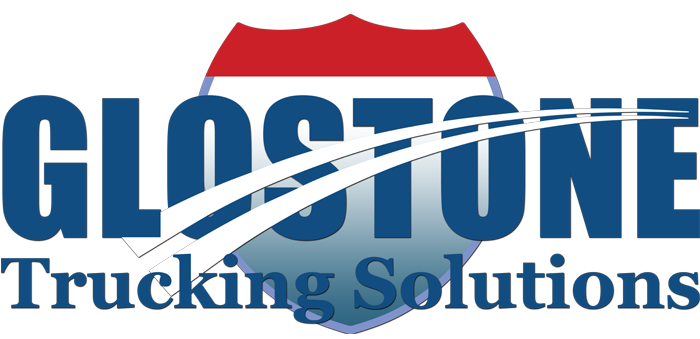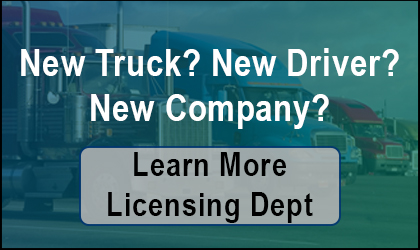September Newsletter – Glostone News
posted in Uncategorized by Brian Gray
September Newsletter – Glostone News
CARB Deadline Fast Approaching
The California Air Resources Board (CARB) is now requiring owner-operators and companies that dispatch vehicles to verify that each contracted vehicle is in compliance with the California Truck and Bus Regulation or has reported compliance to CARB. This requirement applies to all motor carriers, not just those based in California. As a single truck owner, the PM filter requirement deadline for 1996-06 model engines is January 1, 2014. This accounts for most of the trucks operating in California at this time. This means that owner-operators have four months to either retrofit their vehicles or buy a compliant new one. After January 1, motor carriers will not be able to dispatch non-compliant owner-operators or they risk losing contracts and disrupting service The issue for owner-operators lies with the fact that the diesel particulate filter retrofit can cost as much as $20,000. If this seems like an unworthy investment, the only other option is to purchase a truck with an EPA-compliant 2007 model engine. To help owner-operators, fleet events are being held throughout California to make sure drivers have detailed information on what steps to take, how to apply for financing to retrofit their trucks, and what requirements they will face. Fleet owners are encouraged to contact CARB for more details and are also encouraged to engage with their owner-operators immediately.
Compliance Requirements When Hiring a New Driver or Leasing On an Owner Operator
Using unqualified drivers is a classic blunder in the trucking business. It is one of the worst things a carrier can do in terms of exposing your company to legal action and enforcement issues. At Glostone, we usually hear of these mistakes after it’s too late. Here are a few classic examples of decisions that led to trouble with the Federal Motor Carrier Safety Regulations, International Fuel Tax Agreement regulations and/or their insurance company.
- “My driver got sick and could not deliver his load so his cousin met up with the truck and completed delivery on-time.”
- “I sent my new driver in for a drug test after he delivered his first load. I wanted to see how he would do before I spent the money on a drug test.”
- “My brother just wants to run under my authority until he can afford his own authority”
These decisions were made without going through the required qualification compliance requirements. When a Federal Motor Carrier Safety Administrator auditor found out, the results were costly in both time and money. What these companies failed to understand is that at the moment they used a driver or allowed anyone to operate under their authority, they became an employer, even if no money was exchanged. Employers are not only responsible for their own actions and compliance but for the actions and compliance of all drivers operating under his authority. Unless new drivers have been properly qualified to drive for your company, using them, even for just a few hours, can be a disaster. Here is a list of typical requirements an employer must complete BEFORE or VERY SOON AFTER allowing someone to use his commercial motor vehicle or his operating authority:
- Before anyone can operate a Commercial Motor Vehicle for carrier, the carrier must first see proof of a “verified negative DOT pre-employment drug test” for the driver. This can often take more than 24 hours to complete. Hired drivers must be added to your Drug and Alcohol Testing Program.
- New drivers must be added to your insurance policy. If this is not done, then the new driver is most like not insured by your policy, leaving you responsible for the full cost of any losses or damages they might incur.
- Within 30 “days-of-hire”, a carrier is required to have completed a Driver File on any Class-A CDL operator. This file contains many different forms, applications and releases, not to mention a copy of the operator’s driving record. The driver file must also contain signed affirmations that the driver will follow your company policies. There will be time-sensitive/dated material in a driver file making it crucial to complete in the proper time frame.
Here is a list of typical requirements an employer must complete on-going when using a driver or an owner operator leased under his authority:
- The employer is responsible for all of the safety aspects of the driver and equipment such as log auditing, responding to roadside violations, scheduling and maintaining equipment, and tracking the required daily driver vehicle inspection reports. In addition, it is the employer who must respond and will be liable for any DOT enforcement audits.
- From a tax perspective, the employer is generally responsible for reporting any fuel or mileage taxes incurred. The employer may charge back leased owner operators for their share of taxes if your lease agreement with them specifies this.
Another important element when leasing on an owner operator to your company is the lease agreement. The Federal Motor Carrier Safety Regulations require that when you allow another owner operator to use your company name, US DOT number, and operating authority, there must be a written lease agreement between you and the owner operator. The lease agreement must be kept in the truck and be available for inspection. From the FMCSR perspective, your written lease must contain certain elements. You should go to the Federal Motor Carrier Safety Regulations, section 379.12, to find these elements. In a nutshell, you should never allow anyone to just “hop into your truck” to drive or even as a passenger without having gone through an extensive background inquiry, drug testing and insurance updates. You should never allow an owner operator to use your company name and US DOT number without these same qualification checks as well as having a Federal Motor Carrier Safety Regulation qualified lease agreement in place.
For more information regarding the compliance requirements of hiring a driver or leasing on an owner operator, contact us at 503-607-1088.






